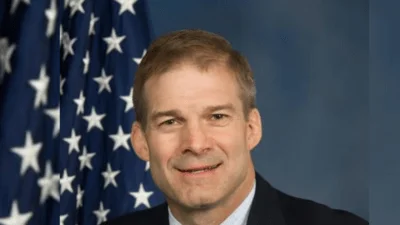Thank you Mr. Chairman.
Let me start off by saying that you have done a great job since assuming the chair from our colleague, Mike Simpson. I have enjoyed working with you and appreciate the cooperation exhibited by you and the subcommittee staff as we have worked to address some of the important issues facing not only our nation but our planet. You have carried out your duties as chairman in an open and collaborative manner and for that I am truly appreciative.
It has been my privilege to serve on this subcommittee for nearly 20 years, including serving as chairman, and for the last four years as the ranking member. I consider Interior and Environment a very important subcommittee. Literally the very quality of the air we breathe and the water we drink depends on the programs funded by this bill.
That is why I am disappointed that with the budgets that have been set for the past several years. We have tied ourselves up in a financial straightjacket that doesn’t allow us to meet the needs the needs of today, yet alone lay the foundation for the future.
There is an old Native American proverb that “we do not inherit the earth from our ancestors; we borrow it from our children." We owe it to generations to come to leave this earth a little cleaner and a little greener than we find it today.
My concern is that with many areas of this bill, we are just treading water. In other areas we are falling behind on investments in our physical, natural, and human infrastructure.
Mr. Chairman, I recognize the difficulties you faced in crafting this bill. While at first glance the subcommittee’s 302(b) allocation of $30.220 billion appears higher than last year, when you factor in increased firefighting costs and the majority’s decision to fund the Payment in Lieu of Taxes (PILT) from discretionary appropriations, we are left with less funds overall to fund the many important agencies and programs in the bill.
As a result, important programs like the Land and Water Conservation Fund (LWCF) are badly underfunded and many other programs and agencies are flat-funded.
The most significant cuts in the bill center on the Environmental Protection Agency. I recognize that with certain members there is a level of frustration with the management of the agency but I am deeply concerned that the magnitude of the cuts and their continued nature year after year are weakening the very foundations of the agency and the important programs that it administers. It’s time to stop thinking of EPA accounts as a piggy bank for other agencies and programs in the bill.
The Chairman’s Mark includes robust funding for wildland fire, including $470 million to prefund the expected shortfall in FY 2014 fire costs. Already that funding is out of date, as the latest estimate of the FY 2014 shortfall as contained in the Administration’s supplemental request sent up yesterday is $615 million. Without some relief from fire costs, as proposed by our colleague Mike Simpson and endorsed by the Administration, fire is going to “burn" a hole in the Interior and Environment budget.
While I recognize the political pressure the majority faced to fund PILT in this bill, I believe this was a mistake. If state and local governments believe PILT is an entitlement, it should be funded from mandatory spending, as was the case for the past six years, rather than from discretionary appropriations where it crowds out funding for other high priority needs.
I would note that we have identified 23 problem legislative riders and funding limitations contained in the Chairman’s Mark, with five of these provisions being new this year. These provisions do not belong in the bill and their effect would be to undermine important environmental laws, threaten public health and safety, and deny the impact that CO2 and other greenhouse gas emissions have on our planet.
One bright spot in this bill is the bipartisan support and funding for Native American programs. To the best of our ability we are trying to meet our obligations to Native Americans and the emphasis on education and social services, including funding to carry out the Violence against Women Act, is appreciated.
Mr. Chairman, as much as I appreciate the process used in developing this bill, I can’t support the product at this time. I recognize that today is just the first step in a long process towards enactment and I intend to continue working with you and other members to seek improvements to the bill so that in the end we can have a final legislative product that has bipartisan support.
Thank you Mr. Chairman.
Source: U.S. Department of HCA








